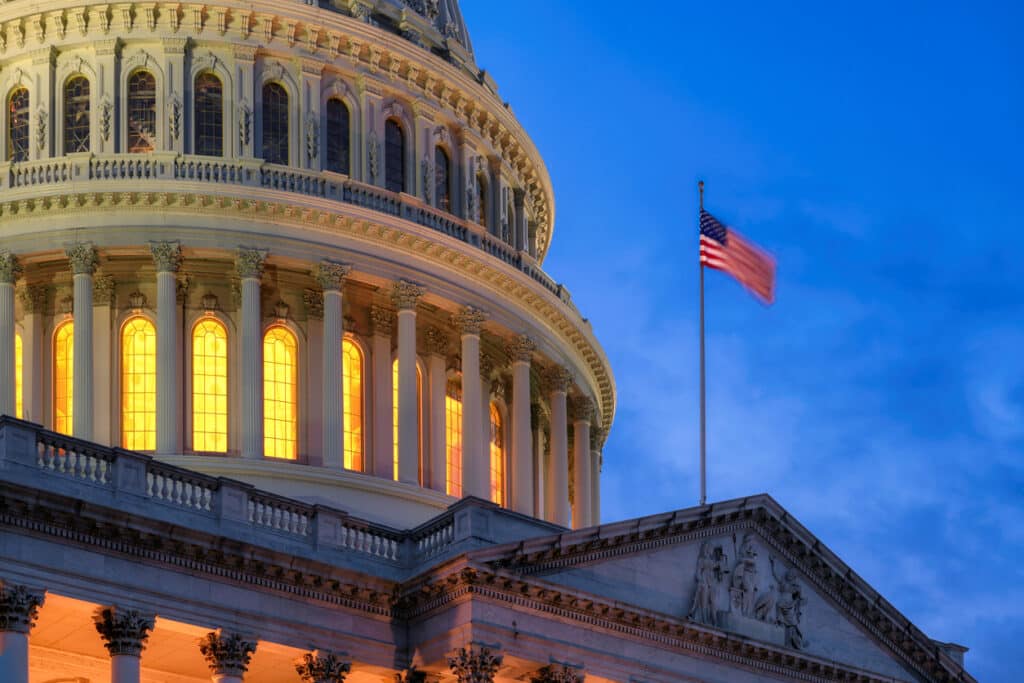The US House of Representatives passed a $78 billion tax bill restoring the ability for businesses to immediately deduct the cost of research and experimentation (R&E) investments for the current tax year.
Along with removing the requirement that domestic R&E investments be deducted over five years, businesses will also be able to immediately deduct 100 percent of their machinery and equipment investments.
Additionally, the legislation provides interest deductibility for businesses who had no choice but to take out loans at high rates to pay their employees and grow their operations.
The bill also takes an international focus, removing the current double taxation that businesses with operations in both Taiwan and the US face today in a bid to bolster competitiveness with China.
If the landmark bill makes it over its final hurdle to gain Senate approval, all of these measures would run until 2025, reversing some much-hyped (and much-feared) pillars of the 2017 Tax Cuts and Jobs Act that were set to go into effect for the 2023 tax season.
According to the House Ways and Means Committee, the package secures $600 billion worth of tax incentives, designed to:
- Create over $70 billion in new US R&D investment
- Bolster 2 million direct R&D jobs, while ultimately supporting upwards of 21 million total jobs (with a focus on manufacturing)
- Generate $58 billion in additional take-home pay for American workers
- Increase investment by $400 billion.
Bipartisan support in House; hopes for the Senate
The bill passed 357 to 70, making it the House’s first major bipartisan bill to pass this year, despite 47 Republicans and 23 Democrats voting against the bill.
The legislation would be financed by curbing the employee retention tax credit (ERC), a controversial, pandemic-era measure that was designed to keep workers on payroll, but has been mired in fraudulent claims.
While the bill enjoyed widespread support in the House, given that the US is in a highly contentious election cycle, Senators have threatened to “pump the brakes” on passing the legislation in an attempt to thwart a perceived “win” for Democrats (namely, the Biden Administration).
Still, many politicians are optimistic that this key legislation will land in time to help innovative businesses in the United States continue to thrive and growt.
“The majority of the country is really thirsty for us to do things in a bipartisan manner,” Representative Greg Murphy, Republican of North Carolina, said in an interview with the New York Times. “We’ve seen a lot of gridlock because some people really want to, basically, say no to everything. And I think we do need to move forward and actually show people that we can govern.”
Racing to Tax Day
While the legislation enjoys wide private and public sector support across parties, it’s hardly a sure thing that these changes will be passed in time to impact upcoming tax claims—especially as the IRS has already begun accepting federal income tax returns starting January 29.
The brightside in this scenario? With many businesses now having to claim taxable income either at higher rates or for the first time, the R&D tax credits offered by Section 41 actually become more important and valuable in offsetting dues than they had in the past.
At Boast, we partner with hundreds of businesses across North America to both optimize their R&D while maximizing their access to the non-dilutive government funding they deserve.
Using our AI-driven platform, Boast seamlessly integrates your business’ financial and payroll data alongside the activity and project tracking systems your product teams use every day. This provides a real-time, automated way for you to identify and quantify all available R&D activities and expenses that can take a lot of the guesswork out of the claims process..
Check out our Guide to R&E Amortization and Capitalization to get a primer on how the current Section 174 rules are causing headaches for startups across the United States.
Then, talk to an expert at Boast today to learn how we can help you uncover sources of funding to extend your R&D runway.









